Buying Chinese Generator: What You Need to Know Before You Purchase
So, you’re thinking about buying a generator from China? It’s a pretty common idea, especially since you can often find some really good deals. But, like with anything big you buy, there are some things you should definitely know before you hand over your money. This guide is all about helping you make a smart choice when you’re buying Chinese generator, so you get something that actually works and lasts.
Key Takeaways
- Always check who made the generator; good companies make good products.
- Make sure the generator has a pure copper alternator, not aluminum.
- Don’t just go for the cheapest price; it usually means lower quality.
- Ask for proof the generator was tested before it gets shipped to you.
- Pick a generator that fits what you need it for, whether it’s for your home or a big job.
Understanding Chinese Generator Quality
It’s easy to assume all generators from China are the same, but that’s far from the truth. The quality can vary significantly, so it’s important to know what to look for. Let’s break down how to approach this.
Identifying Reputable Manufacturers
Finding a good manufacturer is the first step. Don’t just go for the cheapest option. Look for companies with a solid track record. Check their history, how long they’ve been in business, and if they have any certifications. A good sign is if they have partnerships with well-known international brands. Also, pay attention to diesel generator sets that are known for their reliability.
Avoiding Substandard Products
Substandard products are a real concern. Here’s how to minimize the risk:
- Check the materials: Ask about the quality of steel, copper, and other components.
- Look for certifications: Certifications like ISO are a good sign.
- Read reviews: See what other customers are saying about the product and the manufacturer.
The Nuance of Chinese Manufacturing
It’s important to understand that China has manufacturers at all levels. Some focus on high-quality exports, while others prioritize low-cost production. The key is to do your homework and not assume that all “Made in China” products are the same.
It’s not fair to paint everything with the same brush. Some Chinese manufacturers are producing top-notch generators that can compete with the best in the world. The trick is to find them. Don’t rely solely on price; consider the reputation and Chinese generator reviews of the manufacturer. Focus on finding manufacturers that prioritize quality and have a proven track record. This will greatly improve your chances of getting a reliable generator. The perception of Chinese generator quality is changing, with many now recognizing the value offered by certain brands.
Key Components and Specifications
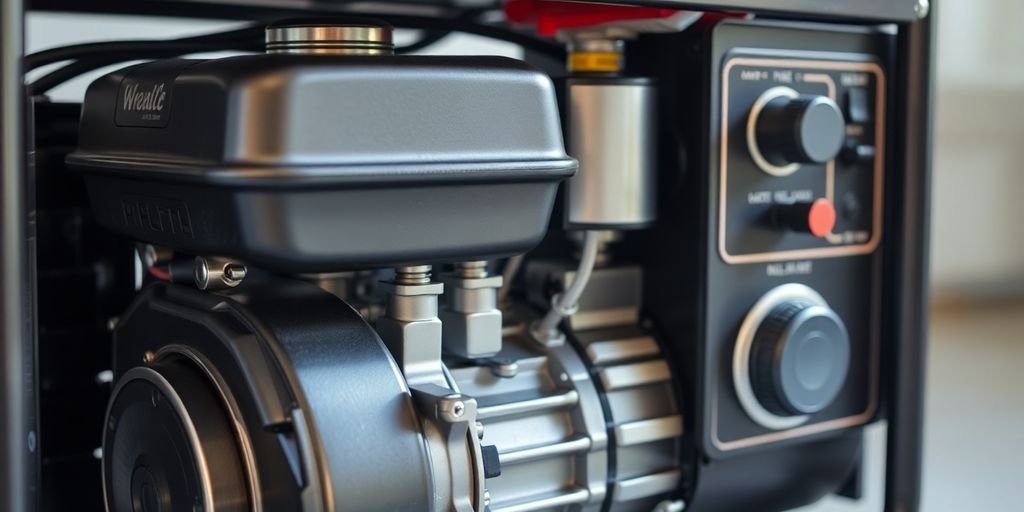
When you’re looking at Chinese generators, it’s easy to get lost in the details. But focusing on the core components and their specs is super important. It’s like checking the engine and tires before buying a car – you want to make sure they’re up to the task. Let’s break down what to look for.
Verifying Engine and Alternator Brands
Don’t just assume all generators are created equal. The engine and alternator are the heart and soul, so pay close attention to their brands. Some well-known international brands, like Cummins or Perkins, might have factories in China. If you see those, it’s generally a good sign. Also, some local Chinese brands such as Weichai are becoming increasingly reputable. Always verify the brand and model number and do a little digging online to see what others are saying about them. This is a good way to find a reliable Chinese generator.
Insisting on Pure Copper Alternators
This is a big one. Many less scrupulous manufacturers will try to cut costs by using aluminum windings in the alternator instead of copper. Copper is much more efficient at conducting electricity, which means a generator with a copper alternator will deliver more stable and reliable power. Aluminum alternators are cheaper, but they’re also more prone to overheating and failure. Ask the supplier point-blank if the alternator uses pure copper windings. If they hesitate or give you a vague answer, that’s a red flag.
Checking Product Certifications and Compliance
Certifications are like a report card for generators. They show that the product has been tested and meets certain safety and performance standards. Look for certifications like ISO9001, CE, or EPA. These certifications aren’t a guarantee of quality, but they do indicate that the manufacturer is at least trying to meet some minimum requirements. Don’t be afraid to ask the supplier for copies of the certifications and verify them with the issuing organization if possible.
It’s easy to get caught up in the excitement of a new purchase, but taking the time to verify these key components and specifications can save you a lot of headaches down the road. A little bit of research upfront can make a big difference in the long-term performance and reliability of your generator.
Researching and Vetting Suppliers
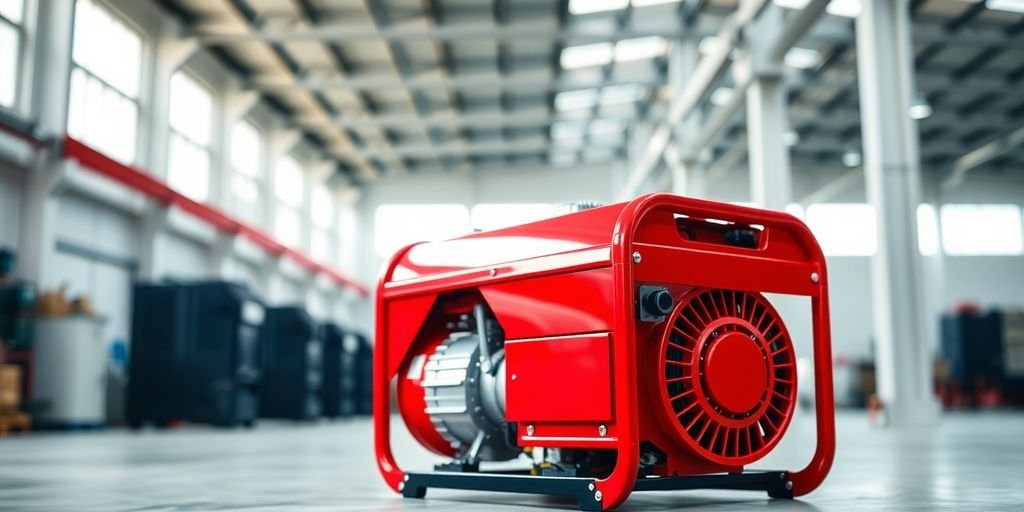
Okay, so you’re thinking about buying a Chinese generator. Smart move to do your homework! It’s not as simple as just picking the cheapest one you see. You really need to dig into who you’re buying from. Let’s break down how to make sure you’re dealing with a solid supplier.
Conducting Thorough Manufacturer Research
First things first: research. Don’t just go with the first company that pops up in a search. Look for real reviews, not just the ones on their website. See if you can find case studies or testimonials from other customers. A good sign is if they’re certified by international standards like ISO9001, CE, or EPA. That shows they care about quality. A reputable manufacturer will have proof of these things, not just claim them.
Requesting Customer References
Don’t be shy about asking for references. Any decent manufacturer should be able to give you a list of past customers. Reach out to those people, especially ones who bought similar generator models. Ask them about their experience: Did the generator work as expected? Was delivery on time? Was after-sales service any good? Positive feedback is a great sign, but even negative feedback can be helpful – it shows you what to watch out for.
Considering Factory Visits or Virtual Inspections
If you can swing it, a factory visit is ideal. Seeing the operation firsthand can tell you a lot about their processes and quality control. If a trip isn’t possible, ask for a virtual tour via video call. A transparent manufacturer will be happy to show you around, walk you through the production line, and show you their testing facilities. If they hesitate or refuse, that’s a major red flag.
Ensuring Performance and Reliability
Testing the Generator Before Shipment
Before you finalize that purchase, make sure the generator gets a proper workout. Don’t just take the manufacturer’s word for it; ask for documented testing. This should include load testing at various capacities. A reputable manufacturer will happily provide this, showing you that the generator can handle what it promises. It’s a good idea to ask for a video of the testing process. This way, you can visually confirm that the generator is performing as expected before it even leaves the factory. This is especially important when considering SC8D280D2 diesel generator.
Understanding Power Output and Fuel Efficiency
It’s not just about how much power a generator can produce, but how efficiently it does so. Fuel efficiency is a big deal, especially if you plan on using the generator frequently or for extended periods. Make sure you understand the generator’s fuel consumption at different load levels. A generator that guzzles fuel might not be the bargain it seems at first glance. Also, pay close attention to the difference between the generator’s rated power and its maximum power. The rated power is what it can consistently deliver, while the maximum power is a short-term peak. You want to make sure the rated power meets your needs.
Assessing Operational Stability
Operational stability is key to a reliable generator. Here’s what to look for:
- Voltage Regulation: A stable voltage output is crucial for protecting your sensitive electronics. Ask for the voltage regulation specifications and make sure they meet your requirements.
- Frequency Stability: Similar to voltage, a stable frequency is important for the proper operation of many devices. Check the frequency stability specifications.
- Load Response: How quickly and smoothly does the generator respond to changes in load? A good generator should be able to handle sudden increases or decreases in power demand without significant fluctuations.
It’s worth investing a bit more upfront to get a generator that’s known for its stability. This can save you headaches and potential damage to your equipment down the road.
A stable generator is a happy generator, and a happy generator means a happy owner.
Navigating the Purchasing Process
Avoiding Extremely Low Prices
When you’re looking at generators, especially from overseas, it’s tempting to go for the cheapest option. But, like with most things, if a price seems too good to be true, it probably is. Super low prices can be a red flag for substandard components, poor manufacturing, or even outright scams. It’s better to pay a bit more for a reliable generator than to end up with a lemon that breaks down after a few uses. Think of it as an investment – you’re paying for peace of mind and long-term performance.
Prioritizing Well-Known Brands
While there are definitely some hidden gems out there, sticking with established brands generally reduces your risk. These companies have a reputation to uphold, so they’re more likely to use quality parts and have better quality control. Plus, if something does go wrong, it’s usually easier to find replacement parts and service for a well-known brand. It’s not a guarantee of perfection, but it’s a good starting point.
Securing Strong Warranties
A solid warranty is your safety net. It shows that the manufacturer has confidence in their product and is willing to stand behind it. Look for warranties that cover at least a year, and make sure they include the major components like the engine and alternator. Read the fine print carefully to understand what’s covered and what’s not. A good warranty can save you a lot of headaches and money down the road. Don’t skip this step! Understanding diesel generator lead time is also important to factor into your purchasing timeline.
Getting a generator can be a big decision, so take your time and do your research. Don’t rush into anything, and don’t be afraid to ask questions. The more you know, the better equipped you’ll be to make the right choice.
Types of Chinese Generators
Residential Versus Industrial Models
When buying power generators from China, it’s important to know what you need. Residential generators are generally smaller, less powerful, and designed for home use during outages. They often run on gasoline or propane. Industrial generators, on the other hand, are built for heavy-duty applications, providing power to construction sites, factories, or even entire buildings. They are more robust, have higher power outputs, and typically run on diesel.
Diesel Generator Popularity in China
Diesel generators are incredibly popular in China, both for domestic use and export. This is largely due to their fuel efficiency, durability, and ability to handle continuous operation. Diesel engines are known for their reliability and longer lifespan compared to gasoline engines, making them a preferred choice for industrial and commercial applications. Plus, diesel fuel is often cheaper than gasoline in many regions, adding to the cost-effectiveness.
Matching Generator Type to Application
Choosing the right generator type is crucial for optimal performance and cost-effectiveness. Here’s a quick guide:
- Residential: Portable gasoline or propane generators are suitable for powering essential appliances during short outages.
- Commercial: Diesel generators are ideal for businesses needing reliable backup power or continuous power supply.
- Industrial: Heavy-duty diesel generators are necessary for demanding applications like construction, mining, and manufacturing.
Selecting the correct generator depends heavily on your specific power requirements, budget, and intended use. Consider factors like power output, fuel type, noise level, and maintenance needs before making a decision. Don’t forget to research importing generators from China to understand regulations and logistics.
When considering best Chinese generator brands, remember to check customer reviews and certifications. This will help you make an informed decision.
Post-Purchase Considerations
Importance of Proper Maintenance
Okay, so you’ve got your Chinese generator. Awesome! But the work doesn’t stop there. Maintenance is super important. Think of it like a car – you wouldn’t just drive it until it breaks down, right? Same deal here. Regular maintenance will keep your generator running smoothly for years to come. This includes things like:
- Changing the oil regularly (check your manual for the correct intervals).
- Cleaning or replacing air filters.
- Checking and cleaning spark plugs.
- Keeping the generator clean and free of debris.
Ensuring Longevity of Your Investment
To really get your money’s worth, you need to think long-term. It’s not just about doing the bare minimum maintenance. Consider these points:
- Proper Storage: If you’re not using the generator for extended periods, store it in a dry, covered location. Drain the fuel to prevent it from going bad and gumming up the carburetor.
- Regular Exercise: Even if you don’t need it, run the generator for a short period every few months. This helps keep the engine lubricated and prevents parts from seizing up.
- Professional Servicing: Consider having a qualified technician inspect and service your generator annually. They can catch potential problems before they become major headaches.
Accessing After-Sales Service
Let’s be real, things can go wrong. That’s why after-sales service is a big deal. Before you even buy a generator, find out what kind of support the manufacturer or supplier offers. Do they have a local service center? Can you easily get spare parts? What’s their warranty policy like? A good warranty and readily available support can save you a lot of stress and money down the road. When choosing a generator, assess your power needs to ensure it meets your requirements.
Don’t underestimate the value of good after-sales support. It can be the difference between a minor inconvenience and a major disaster. Make sure you know who to call and what to expect if something goes wrong with your generator.
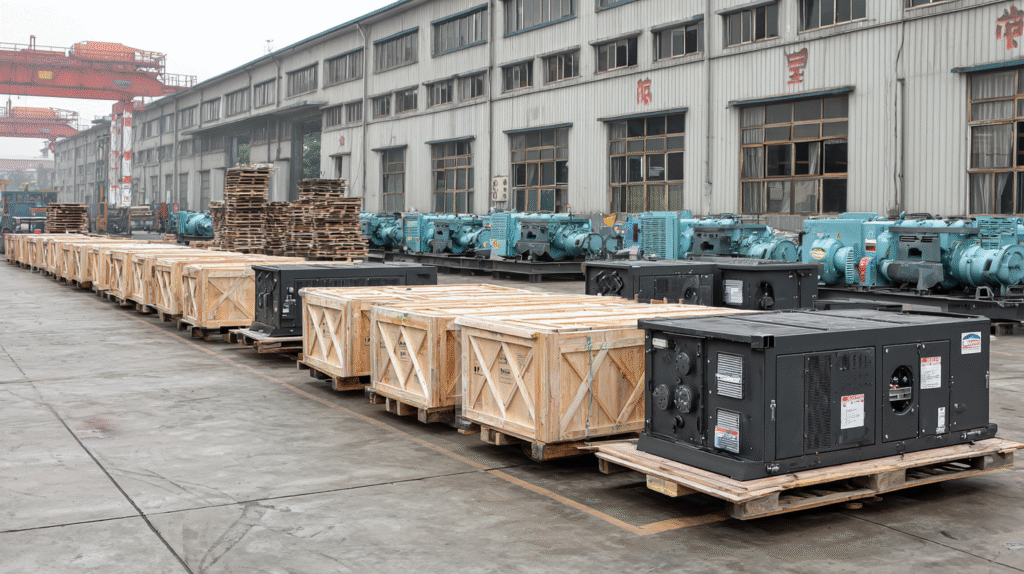
Conclusion
So, when it comes to buying a generator from China, it’s not just a simple click and buy. You gotta do your homework, really look into who you’re buying from, and make sure what they say they’re selling is actually what you’re getting. Don’t just go for the cheapest thing out there, because, trust me, that usually means trouble down the road. Stick with brands that people know and trust, and always, always make sure there’s a good warranty. If you take these steps, you’ll probably end up with a generator that actually works and lasts a while. Otherwise, you might just be throwing your money away.
Frequently Asked Questions
How can I tell if a Chinese generator is good quality?
It’s super important to check out the company that makes the generator. Look for good reviews and stories from other buyers. A good company will be open about how they make things and what parts they use.
What parts should I pay attention to when buying?
Always ask if the generator uses pure copper in its parts, especially the alternator. Copper is better than aluminum for making electricity and lasts longer. Also, check if the engine and other main parts are from well-known brands.
Are there any important certifications I should look for?
Make sure the generator has important papers like CE, EPA, or ISO9001. These papers show that the product has been tested and meets safety and quality rules.
Should I always go for the cheapest option?
Don’t just pick the cheapest one. Really low prices often mean lower quality. It’s better to choose brands that are known and trusted, even if they cost a bit more. Also, make sure you get a good warranty.
How do I pick the right type of generator for my needs?
You need to know if you need a generator for your home or for a big business. Home generators are smaller, while industrial ones are much larger and more powerful. Think about what you’ll use it for most.
What should I do after I buy the generator?
After you buy it, you need to take good care of your generator. This means regular check-ups and maintenance. Also, make sure the company you buy from offers good support after you’ve made the purchase, in case you have problems.

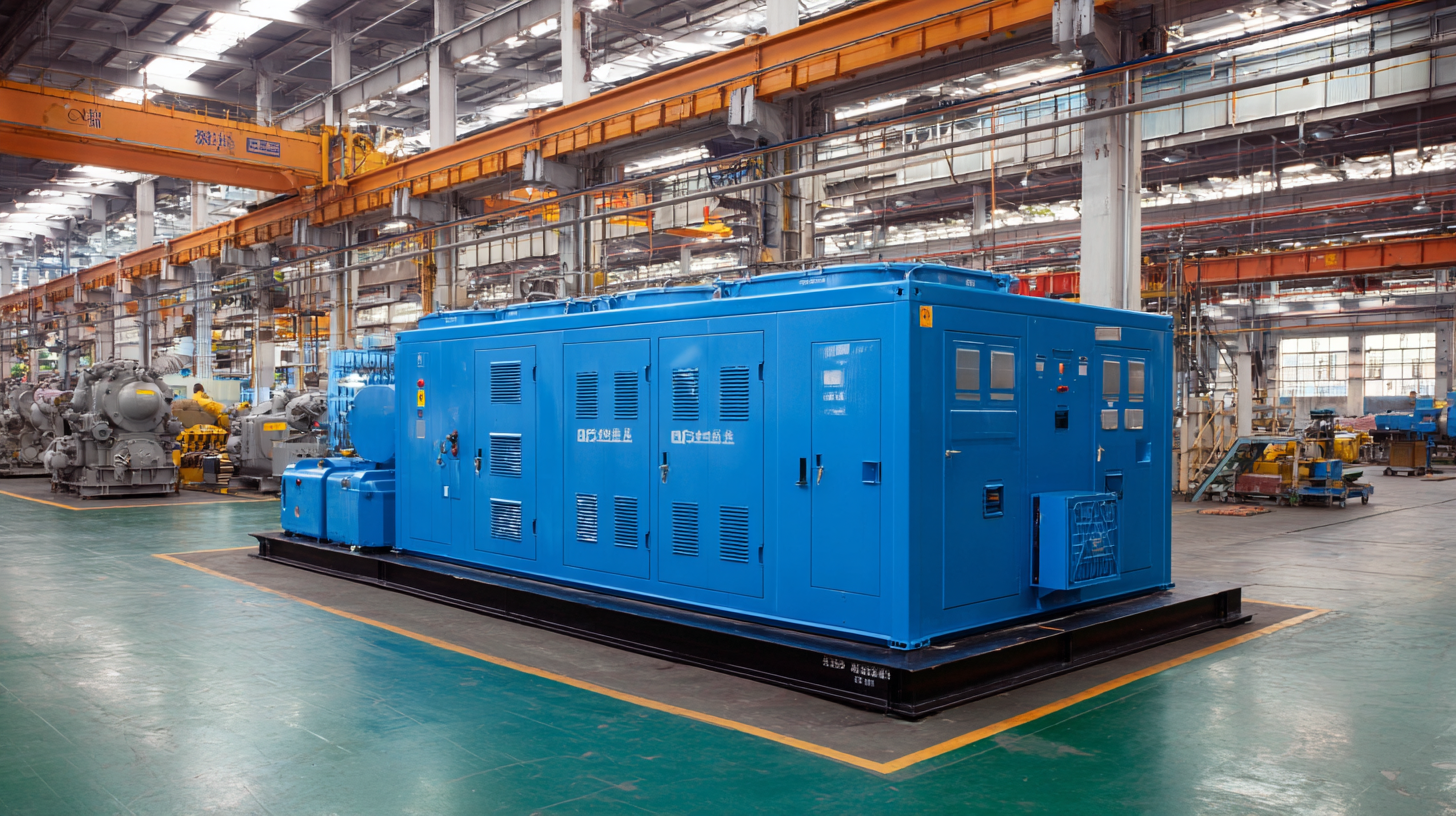



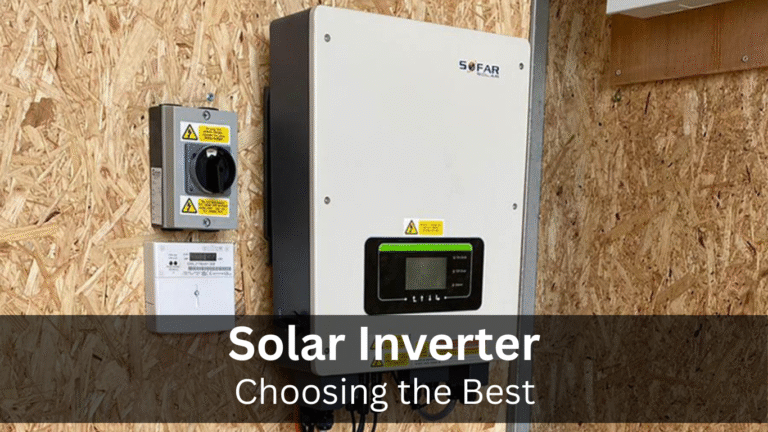
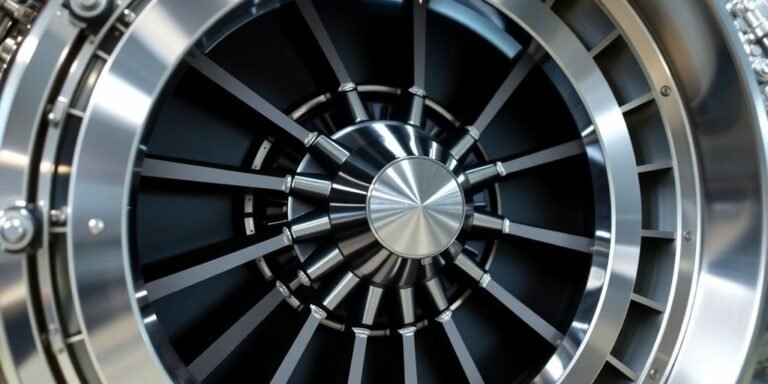
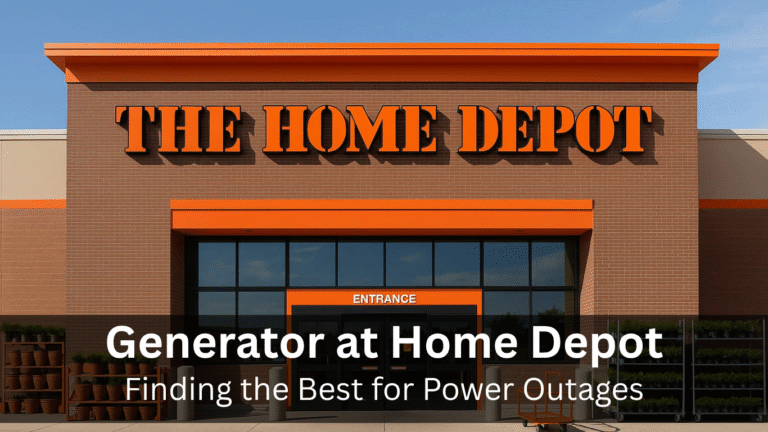

3 Comments